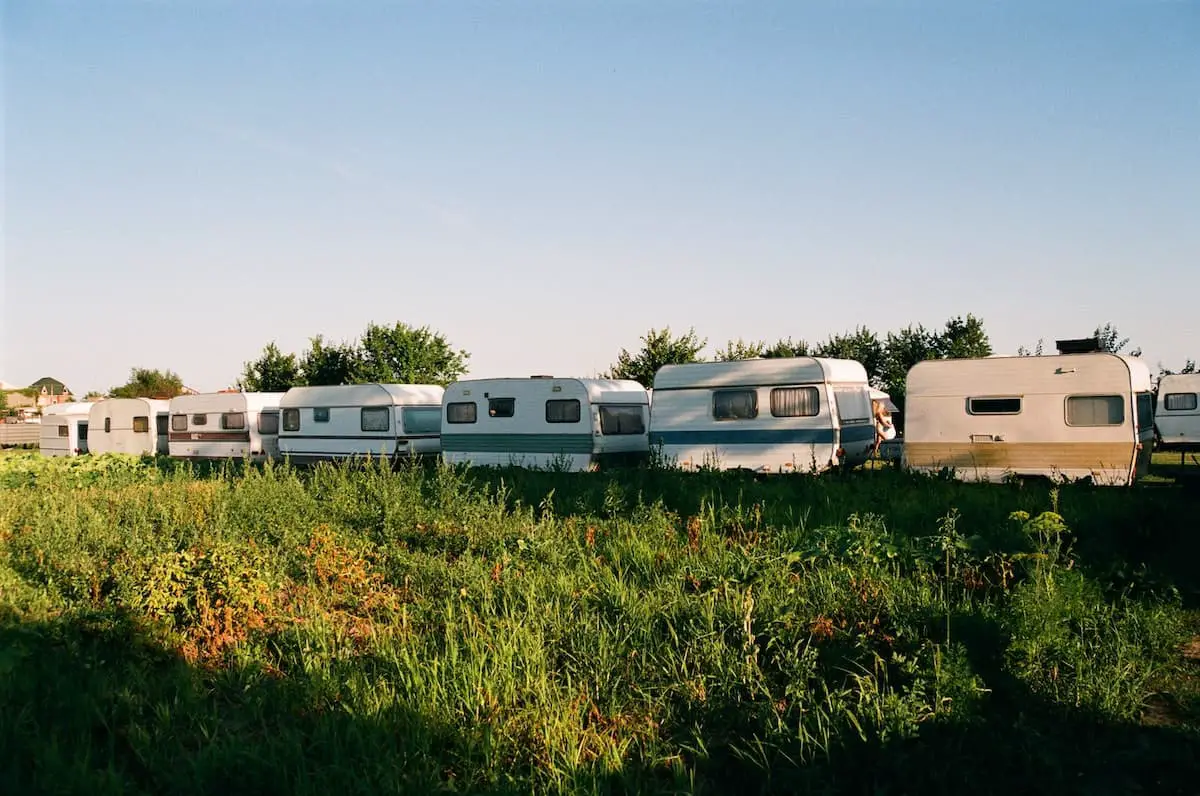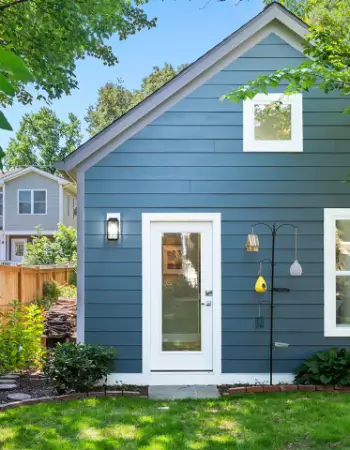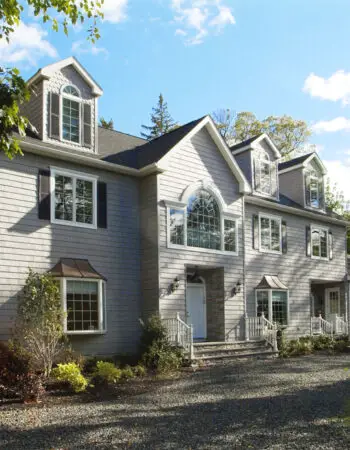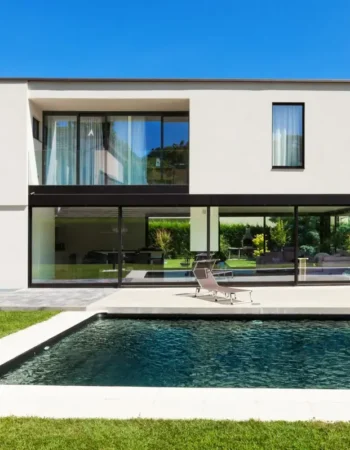Modular homes can’t be built on a housing community park, therefore it is not possible to start a modular home park. Instead, you can start a mobile home park which is also known as a trailer park or a manufactured home park. Only houses considered personal property are allowed to be placed in mobile home parks, these houses are legally considered manufactured homes and are always built according to the HUD codes.
Step by step to starting a mobile home park:
- Feasibility study
- Decide if you start from scratch or convert an older park
- Find the property and get zoning approvals
- Get financing aid
- Build and start the park
Modular homes are always constructed as permanent structures that once built will become real estate property together with the land on where they are built. Often modular homes are mistaken for mobile homes, though these types of constructions highly differ from those you could place in a mobile home park.
Why you cannot build a modular home in a mobile home park
Modular homes are often mistakenly mixed up with manufactured or mobile homes, though they are very different types of constructions. The main difference between these two houses remains in the legal treatment they receive: modular homes are always real estate property. It is impossible to buy a modular home detached from its land because modular homes are permanent constructions that aren’t fully built until they are assembled on their defined land.
The owner of a modular home owns the land where the modular home is placed. A modular home can’t be conceived without its piece of land while a manufactured home could easily be moved from one lot to another without losing its identity. It isn’t possible to put a modular home in a mobile home park because modular homes cannot be placed on rented land.
Mobile home parks are big extensions of land with several manufactured homes placed for residential purposes [1]. In most cases, those living in the manufactured home own the house itself but not the land, in order to place a manufactured home in a park the homeowner is asked to rent the plot space [2]. Occupants of manufactured homes are both homeowners and tenants because manufactured homes are purchased as personal property.
Personal property is a title more similar to a vehicle than to a house, since manufactured homes are originally designed to be transportable, they are sold on their own without being related to a specific plot of land. This condition prevents them to acquire the title of real estate property and is instead bought as personal property. While a manufactured home can be placed on land owned by the same house owner, it can also be placed on rented land.
List on how to start a mobile home park
1. Feasibility study
Before starting a mobile home park it is important to conduct market research, do not forget that a mobile home park is a business and it is important to verify its feasibility with a business plan. One of the main factors to consider is location: you need to verify that the location you have in mind allows the construction of mobile home parks, their construction is forbidden in most U.S. cities and you may have to build it in the countryside [3].
Another factor to consider in the feasibility study is the population: always ensure that the population of the area falls under the type of homeowner that would be interested in purchasing a mobile home. Generally, mobile home owners are those with salaries of around $35K to $60K [4].
2. Decide if you start from scratch or convert an older park
You can start a mobile home park by buying an empty extension of land and developing it from scratch. Though you can also convert an already existing park. The second option offers the advantage of being all permit-ready and most often with a set of clients already in place. However, most old parks that you can buy need some extra investment to upgrade their facilities [5]. Analyze the pros and cons of each possibility and the economic advantage or disadvantage they will suppose.
3. Find the property and get zoning approvals
Once you have chosen the most suitable approach for your mobile home park, it is time to secure the property and work with an architect to make a plan layout. With this information, you can start requesting all the regulatory prerequisites from your local government such as the zoning permits and licenses. If you have opted to start from scratch this step is crucial, though if you are converting an old park that needs renovations, you shouldn’t dismiss it, there might be legal limitations on your upgrading plans.
4. Finance the park
In order to get financing to build your mobile home park, there are different options. You will be asked to prove the feasibility of the project, so prepare the business plan as well as the zoning approvals. If you can prove your park has potential, you shouldn’t encounter many setbacks when asking for a loan. You might opt for products such as CMBS Loans, Fannie Mae®, or permanent bank financing [6].
5. Build and start the park
You are ready to start building the mobile home park, so you can now hire a contractor to build the layout defined by the architect. If you are starting from scratch, you will have to develop the land with streets, defining every parcel and connecting it to the utilities: water, gas and sewer lines should be installed. Also, since a mobile home park is a housing community, you will have to build a set of amenities such as laundry rooms, off-street parking or recreational facilities [7].
Home options to place in a mobile home park
Only those constructions that are considered non-permanent can be built in a mobile home park. These constructions have to be titled as Personal Property and build according to the regulations established by the Federal Manufactured Home Construction and Safety Standards, following the HUD Code [8]. The correct term for all these constructions today is manufactured home, though there are some commonly used terms to define them:
- Manufactured home
- Mobile home
- Trailer
- Tiny home
These are all prefabricated constructions, which tends to raise confusion among other types of prefabs. However, prefabs such as modular homes are never built under the HUD codes nor as personal property, therefore it isn’t possible to place them in mobile home parks.
References:
- Mobile home park definition Law insider https://www.lawinsider.com/dictionary/mobile-home-park
- What every mobile home owner should know City of Hemet Californiahttps://www.hemetca.gov/DocumentCenter/View/3045/WHAT-EVERY-MOBILEHOME-OWNER-SHOULD-KNOW?bidId=
- Rolfe, F. Why you should never build a mobile home park MHU Mobile Home University https://www.mobilehomeuniversity.com/articles/why-you-should-never-build-a-mobile-home-park
- Naugle, C. (2020, May 16) 4 Keys to determine best locations for buying Mobile Home Parks LinkedInhttps://www.linkedin.com/pulse/4-keys-determine-best-locations-buying-mobile-home-parks-chadd-naugle/
- Leighton, D. (2018, June 21) What You Need To Know About Starting A Mobile Home Park Business MHomebuyers EZhomes LLC https://www.mhomebuyers.com/starting-a-mobile-home-park-business/
- Manufactured Housing Community Loans Multifamily.Loans https://www.multifamily.loans/mobile-home-park-financing
- (2021, June 15) 8 Must-have amenities in Manufactured Home Communities Ascentia Real Estate Holding Company https://ascentia.us/blog/8-must-have-amenities-in-manufactured-home-communities/
- How much does it cost to build a modular home? Home Guide https://homeguide.com/costs/modular-home-prices#vs



